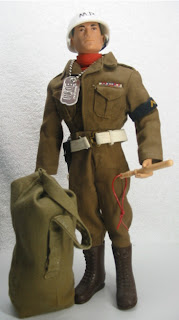Recognize the little things
September 8, 2011 by Coach McCreary
Filed under Coaching
Those of you who have been readers of this blog probably are well aware of my passion for the little things in baseball. One goal that all coaches probably have is to instill this same passion in their players. Having this passion to learn more about the finer points of the game and then be able to apply them in games is what drives most successful players. However, the problem coaches battle with is the fact that many of these little things do not show up in any box score or statistics page. The question becomes, “How do you get a player/team to focus on the little things that most people do not even notice or recognize?” The answer is to start NOTICING and RECOGNIZING them!
One of the things that my coaching staff and I have tried to do is to point out a few examples after every game of little things that players did that made a big difference. These are things that virtually everyone attending the game would have never noticed. In fact, many times the player who did the little thing wasn’t even aware he did it let alone know the importance of it. He could have backed up a play and prevented a run from scoring early in the game. It could have been taking an aggressive lead that drew a throw from the pitcher. It could have been a lengthy at-bat that resulted in a strikeout but forced the pitcher to throw more pitches early in the game. There are so many examples of this that to list them would fill volumes. The importance of these things to winning games is enormous but unfortunately they are rarely recognized. To get more players to focus on these little things, coaches have to recognize them as much as, if not more than, the homeruns, diving plays, and stolen bases.
 |
| Something as tiny as this can works wonders. |
There are a number of ways to do this. One way is to simply mention them in team meetings as we do. Another method is to create some form of award that would go to the player “caught doing a little thing.” It could be a game ball, a t-shirt the player wears for a day, or anything else the coach decides. The point is to recognize and reward the behaviors you want to see. This helps in numerous ways. The obvious one is that when you reward people for certain behaviors, you are more likely to get more of those behaviors. It also sends a very important message to lesser talented players that they can add tremendous value to a team even though their stats that the average person sees (batting average, RBI’s, homeruns, etc.) don’t seem to indicate that. In short, it builds better team unity in that all players are made aware that they matter and play an important role.
One word of advice if you decide to give out a reward. It’s usually better to make the reward itself have very little value. I read one time that a coach used a tiny GI Joe figurine as a reward given to the player who demonstrated an act of mental or physical toughness during the game. The winner on a particular day just passed it on to the next winner. Even though the actual reward was worth practically nothing, the players cherished it as if it was a gold medal. Doing it this way keeps the focus on the “act” instead of the “reward.”
So, if you are a coach, start recognizing positive behaviors you see that most people do not. Be creative with your rewards and usually you will get more of those positive behaviors. Incidentally, if you are a player, you can organize something like this on your own as well. A captain who stands up and recognizes a fellow teammate in this manner can sometimes have an even greater effect on team cohesion and chemistry.
And what team doesn’t need more of that?!





Leave a Reply